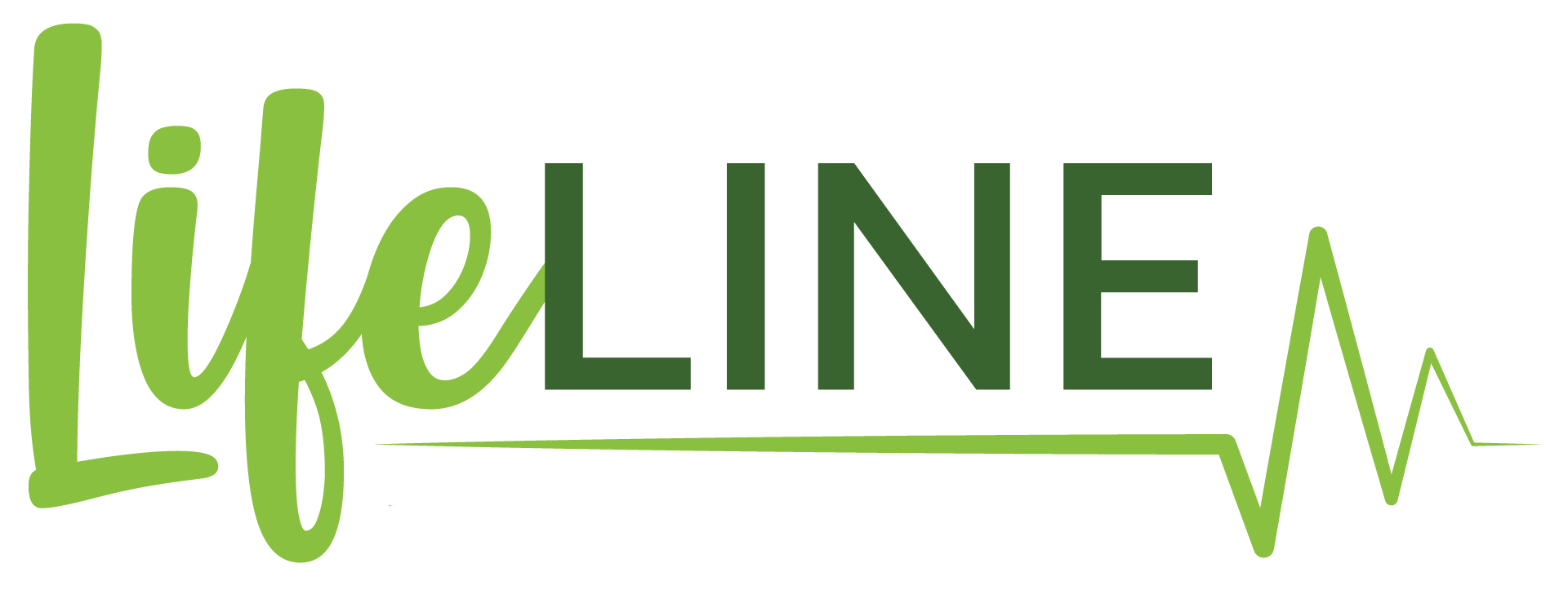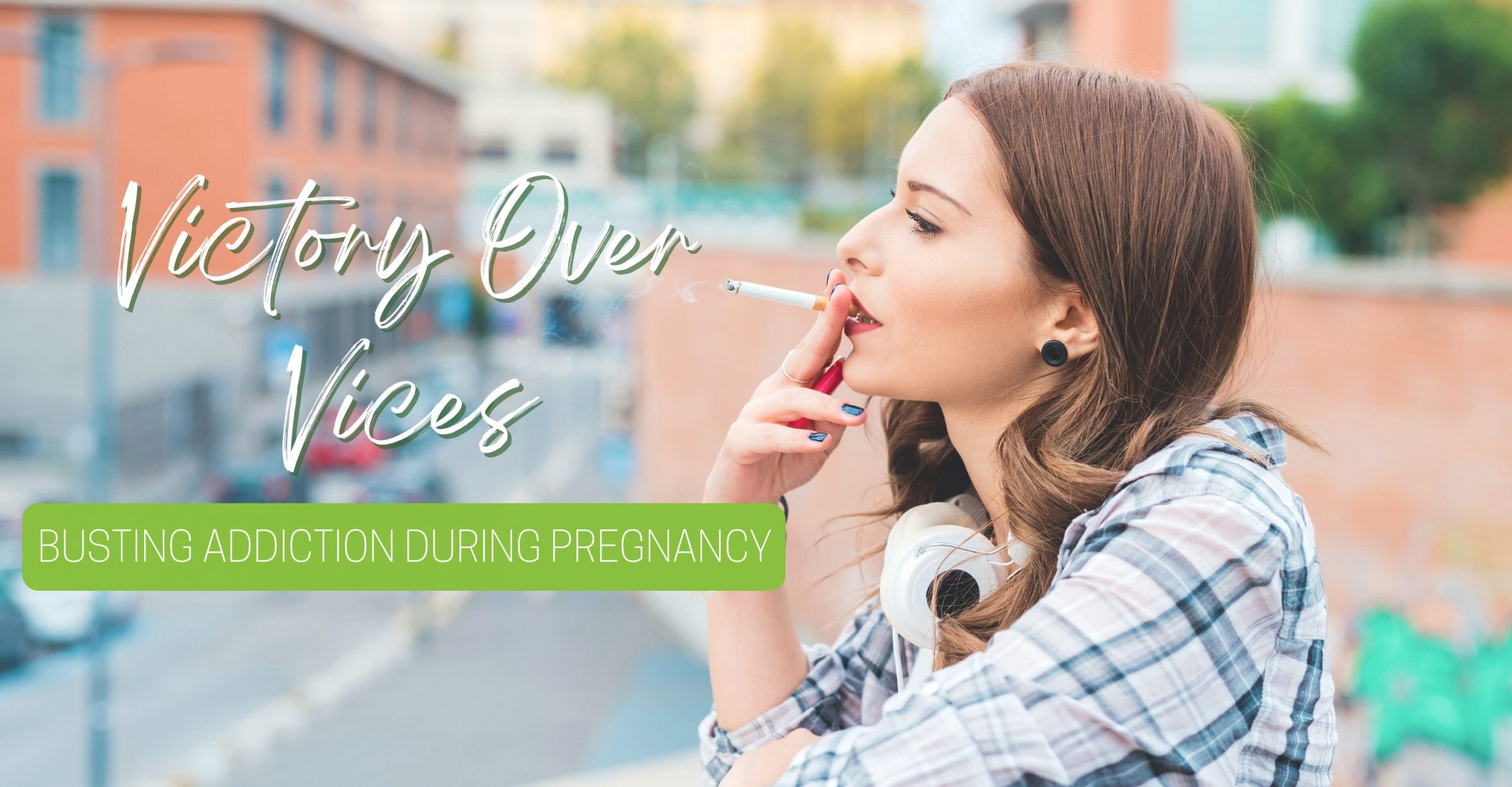You Are Here:
Home » Uncategorized » Busting addiction during pregnancy
Busting addiction during pregnancy
When a new life grows inside us, we may start to think more about how our everyday habits affect our minds and bodies, especially when it comes to addictive behaviors. We already owe it to ourselves to bust an addiction, whether that be to cigarettes or alcohol, but a pregnancy gives us even more reason to quit. Let’s address three different addictive behaviors, how they affect pregnancy, and how we can break free from them.
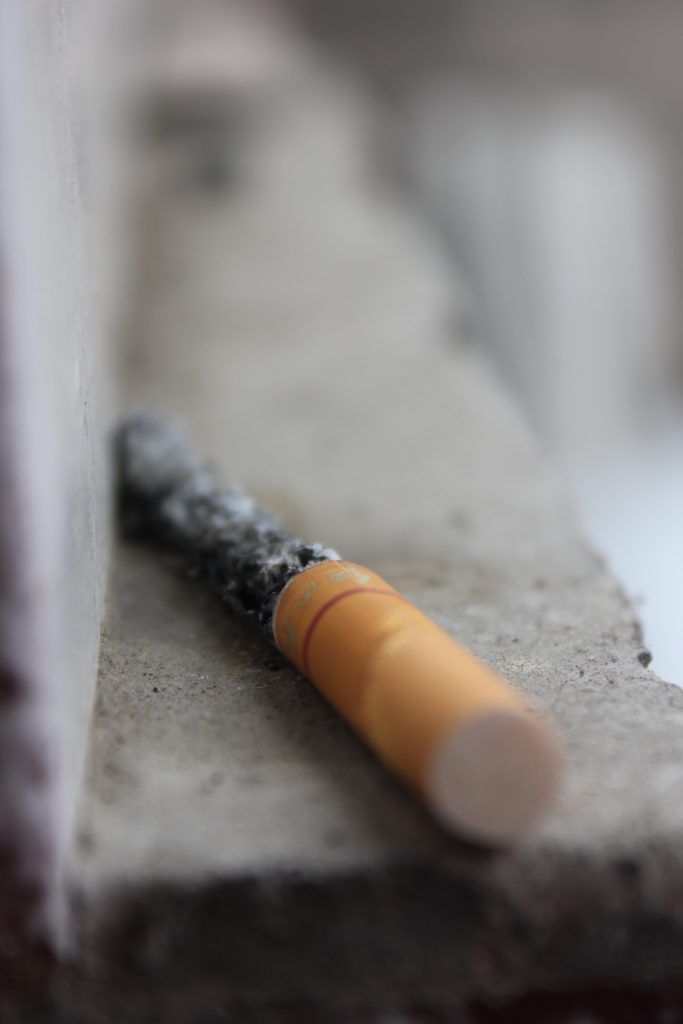
Smoking
We’ve all heard the hazards of smoking. Tobacco smoke contains more than 7,000 chemicals, 250 of which are known to be harmful and 69 that can cause cancer. Smoking can lead to health issues like:
- Cancer (lung, mouth, throat, kidney, blood, and others).
- Heart and lung disease.
- Diabetes.
- Stroke.
- Gum disease.
- Eye conditions, including blindness.
Beyond these conditions that harm adults, smoking during pregnancy can increase the risk of:
- Preterm labor. Babies born premature are more likely to develop health problems than babies born full-term.
- Ectopic pregnancy. This happens when a baby implants outside of the uterus, where he or she is supposed to grow. A baby cannot survive an ectopic pregnancy, and this is also extremely dangerous to the life and health of the mother. Read our post on ectopic pregnancy to learn more about the warning signs.
- Placenta issues. The placenta gives the baby oxygen and nutrients during pregnancy. Problems like placental abruption (when the placenta separates from the uterine wall) or placenta previa (when the placenta covers the cervix) could prevent Baby from receiving these vital resources.
- Birth defects. Common defects associated with smoking during pregnancy include a cleft lip or cleft palate.
- Miscarriage or stillbirth. According to the American Pregnancy Association, over 1,000 babies die a year because their mothers smoked during pregnancy.
- Sudden Infant Death Syndrome (SIDS). This is the unexplained death of an infant, usually during sleep.
E-cigarettes are not a healthy alternative to tobacco. They still contain nicotine, the addictive substance in tobacco cigarettes that can harm both mom and baby. If you smoke tobacco or e-cigarettes, talk to your doctor about how you can quit. Common methods of quitting include patches, gum, and nasal sprays, but discuss these options with your doctor before trying them. We’ll talk more later on how to break an addiction of any kind.
You can sign up for a free text-message reminder from Smokefree.gov designed for pregnant women who want to stop smoking. You can also call 1-800-QUIT-NOW to talk with a smoking counselor. Lifeline’s nurses and counselors are available to talk through your situation and refer you to other addiction recovery resources.
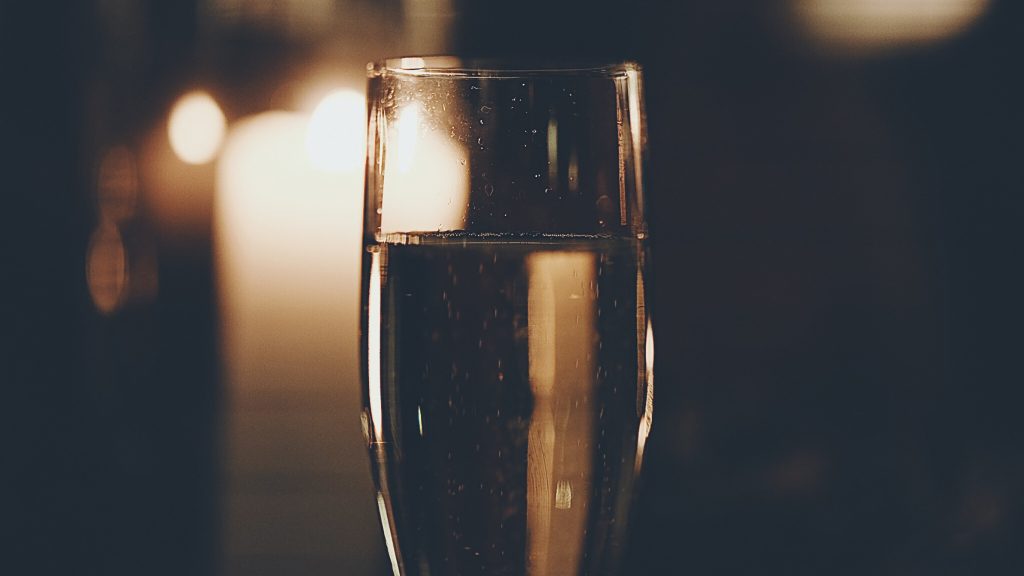
Alcohol
According to the Centers for Disease Control, there is no safe time during pregnancy to drink alcohol, nor a safe amount. Alcohol can cause health issues for an unborn baby during any stage of the pregnancy. Drinking alcohol during pregnancy can lead to miscarriage and stillbirth, as well as Fetal Alcohol Spectrum Disorders (FASDs).
Issues associated with FASDs include:
- Abnormal facial features, such as a smooth ridge between the nose and upper lip (this ridge is called the philtrum)
- Small head size
- Shorter-than-average height
- Low body weight
- Poor coordination
- Hyperactive behavior
- Difficulty with attention
- Poor memory
- Difficulty in school (especially with math)
- Learning disabilities
- Speech and language delays
- Intellectual disability or low IQ
- Poor reasoning and judgment skills
- Sleep and sucking problems as a baby
- Vision or hearing problems
- Problems with the heart, kidney, or bones
FASDs are completely avoidable by not drinking alcohol during pregnancy. Talk to your doctor about the risks associated with drinking during pregnancy, and how you can stop. Even if someone has been drinking during pregnancy, it’s never too late to stop and make a healthier choice. The sooner someone starts avoiding alcohol, the healthier their pregnancy can be.
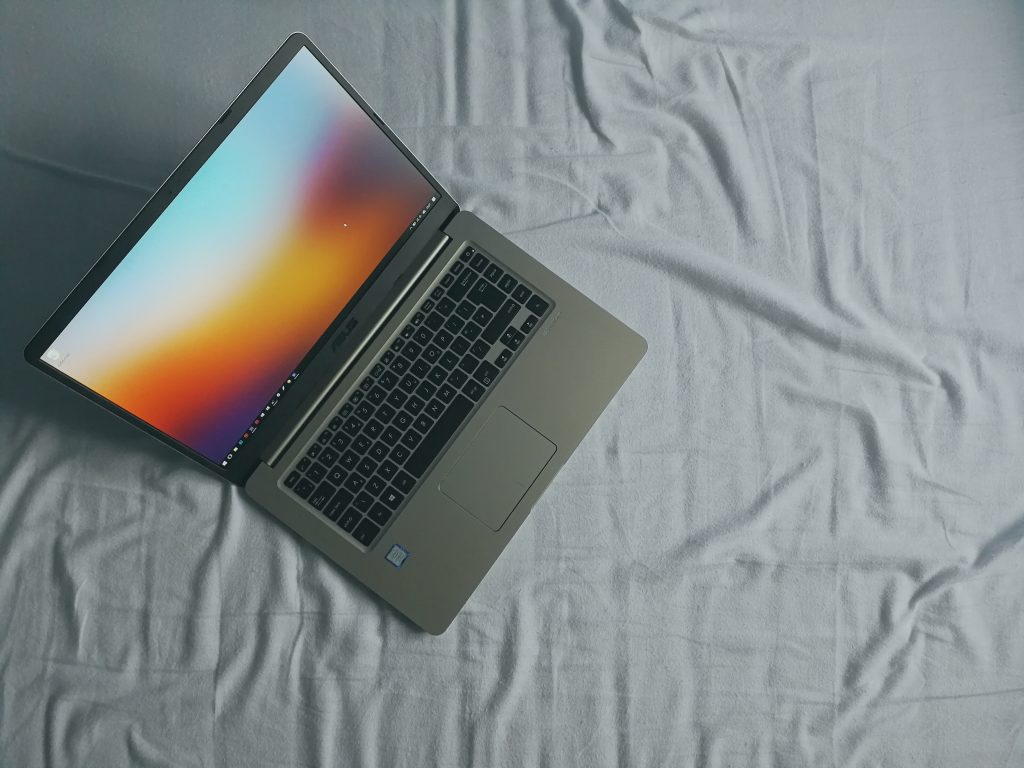
Pornography
Pornography is any sort of visual display or written description of sexual activity or the sexual organs that someone uses to sexually stimulate themselves. Porn could be a photo, a video, or even a story or novel. Someone look at or reads porn to give themselves some sort of sexual or emotional feeling.
Some ask, “What’s the big deal? It’s just between me and my iPhone, right? I’m not hurting anybody.” Actually, porn hurts everybody involved. Fight the New Drug, an organization dedicated to raising awareness about the harmful effects of pornography, tells it like it is: porn hurts the brain, relationships, and the world. It’s never positive and tells us lies about real sex and love.
Why is porn harmful?
- It’s addictive. Porn affects the brain the same way that drugs like cocaine and heroin do. Viewers can get so hooked that they can’t go a day without it. This addiction can also prevent someone’s body from being able to have sex with a real person because they’re so used to these fake images.
- It’s fake. Just like any movie, porn is scripted, acted, directed, and edited. It does not show what real sex is like, or how real people want to be treated.
- It’s violent. Porn contributes to the major sexual violence issues that men, women, and kids experience worldwide. One 2010 study analyzed the 50 most popular porn films, and 88% contained physical violence and 49% contained verbal aggression.
- It’s anti-love. Half of divorces state that porn was a part of why that marriage fell apart. When someone finds out their partner has been looking at porn, they often feel cheated on because their partner is looking at someone else for sexual pleasure.
- It’s anti-freedom. Many people filmed or photographed for pornography have been sex-trafficked (a fancy word for slavery). Men, women, and kids all over the globe are forced or pressured into the porn businesses. They’re they’re abused, drugged, not protected from STDs, and treated like property. There’s no way to know by looking at the photo or video whether or not those actors chose to be there. Any porn, even if it’s of two consenting adults, increases the demand for sexual slavery.
Porn alters our own brains to see others as objects and teaches us unhealthy ideas about sex and relationships. The way we perceive sex and relationships will shape how we teach our kids. We can set an example for them and how they should be treated and treat others by stopping our addictions now. Go to fightthenewdrug.org to learn more about how you can spread the word about real love and fight against addiction, broken relationships, and sexual slavery.
Already hooked on porn?
It’s never too late to make changes! Check out our list of tips on overcoming a porn habit here. Fight the New Drug’s Fortify Program is also a great free app to help anyone who wants freedom from porn addiction.
There are too many awesome resources out there to not get help! Choose freedom today.
How to fight an addiction.
Talk to your doctor about how to quit smoking, drinking, and any other addictive habits. You can also:
- Choose a quit day. On this day, throw away all your cigarettes and smoking supplies, alcohol, or pornographic materials. Mark a day on your calendar within the next couple weeks that you promise to stick to.
- Write down your reasons for quitting, and look at the list when you think about your addictive behavior.
- Identify your triggers. How do you feel when you want to smoke/drink/watch porn? Are you sad, angry, lonely, stressed? Find healthy ways to manage these emotions like exercise, talking to friends and family, seeking counseling, listening to music, or going to a different location.
- Tell your loved ones about your plan to quit. Ask for their support and come up with a plan together of specific steps they can take to help you. You might ask them to text or call you once a week to ask about your progress or have them read your reasons for quitting to you.
- Celebrate progress! Mark your calendar with your first day, week, and month of being addiction-free and tell others about your success.
We’re here to help.
Lifeline Pregnancy Help Clinic offers counseling and prenatal/parenting education at no cost to you. We’d love to help you through your journey of pregnancy and recovery from any addiction and point you toward other great community resources. Make an appointment to meet with our trained nurses and counselors today!
By Kath Crane
Resources:
Aggression And Sexual Behavior In Best Selling Pornography Videos: A Content Analysis Update.
American Pregnancy Association
